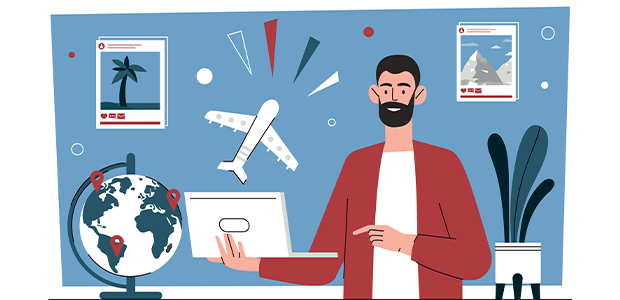
Technology as the Driver of Innovative Tourism Management and Accessible Destinations
Tourism management is undergoing a radical transformation, with technology playing a crucial role in this shift. From visitor experiences to smart destination planning, innovation is revolutionising the sector, paving the way for more sustainable, inclusive, and efficient tourism.
These topics will be explored in-depth with national and international leaders, technology experts, and representatives from public and private organizations at TIS - Tourism Innovation Summit 2024, the leading event on tourism innovation, taking place from October 23 to 25 in Seville, Spain.
Cities are using digital innovation to manage tourist flows more effectively. In this context, representatives from destinations such as Ireland and Saudi Arabia, among others, will explain how they are using artificial intelligence and digital platforms to enhance visitor experiences and ensure sustainable tourism by optimizing their capacity to attract and distribute tourists without overburdening local resources.
Technology is the cornerstone of smart planning. Data analysis enables destinations to make more informed decisions about how to manage tourist flows, avoid overcrowding at key points, and offer personalized experiences. Big data platforms, artificial intelligence (AI), and smart sensors help monitor visitor behavior in real-time, giving tourism managers the ability to adjust their strategies on the fly.
However, technological innovations, such as the implementation of AI, are not without risks and threats. This is why Miguel Ángel Martín (Smart City Cluster), Nina Nesterova (Breda University of Applied Sciences), and Sérgio Lopes (Famalicão City Council) will discuss both the opportunities and challenges that AI presents for tourism planning. The discussion will cover everything from the creation of accessible destinations to the privacy challenges and inequalities that could arise from an over-reliance on technology.
Accessibility is one of the main challenges in today’s tourism, and technology has much to offer in addressing this issue. Adapting destinations for all types of travelers, regardless of their physical abilities, requires innovation. Experts like Almudena Alcaide (Fundación ONCE), Daniel Martínez (Visit Gijón), and Juan Pablo Pinto (Wheel the World) will demonstrate how digitalization and data collection are enabling destinations to tailor services to the specific needs of travelers, ensuring an inclusive experience for everyone.
Smart and Sustainable Mobility: The Path to Greener and More Efficient Tourism
One of the pillars of this new tourism model is mobility. Creating accessible, interconnected, and sustainable transport systems is crucial to the success of future destinations. Gretel Schaj (Civinet), Sofía Pires Bento (Institute for Mobility and Transport), Pedro Fernández (Madrid City Council), and José Luis Borau (Fundación ONCE) will present successful cases where technology is helping cities implement more efficient mobility solutions. These range from the development of urban infrastructures with shared bicycle stations to the promotion of smart public transport.
Furthermore, Adrián Fernández, sustainability director at Renfe, and Arantxa Hernández from the Spanish Railways Foundation will discuss the development of green transit hubs in urban areas, including multimodal transport centers, shared bicycle stations, and charging stations for electric vehicles, to facilitate sustainable travel within cities and promote urban tourism. Internationally, leaders from Germany, Portugal, Italy, and Spain, members of the European Railway Clusters Initiative (ERCI), will present successful projects integrating railways with other modes of transport. They will also address innovations like digital ticketing, eco-friendly technologies, and solutions aimed at improving comfort and sustainability in train travel.
The forum will also address the role of maritime mobility, exploring sustainable and efficient solutions to help reduce the environmental impact of the cruise and port industries. This includes solutions such as Liquefied Natural Gas (LNG)-powered ships or eco-friendly port facilities designed to minimize environmental impact, as explained by experts from the Cruise Lines International Association (CLIA), Valenciaport, the Worldwide Network of Port Cities (AIVP), and the Port of Lisbon, among others.

